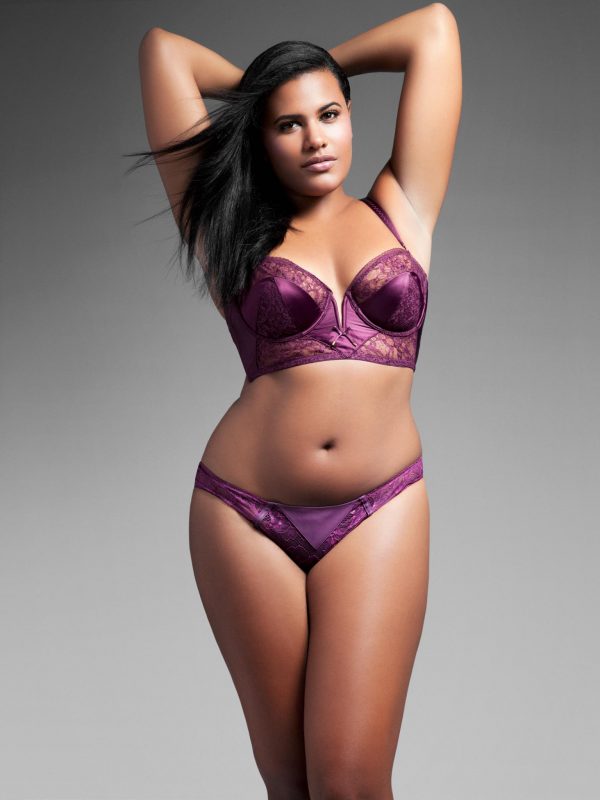 Women pay more attention to — and feel better after looking at — models who are average and curvy compared to models who are thin. That’s the conclusion of a new study from Florida State University researchers, published last week in the journal Communication Monographs.
Women pay more attention to — and feel better after looking at — models who are average and curvy compared to models who are thin. That’s the conclusion of a new study from Florida State University researchers, published last week in the journal Communication Monographs.
Women in the study also remembered more details about fashion models who were not super skinny, and they were less likely to compare themselves to women of more realistic proportions.
The study involved 49 college-age women, all of whom considered themselves “average” weight but aspired to be thinner.
The women were shown various images of fashion models — taken from the Macy’s and Target websites — who’d been classified by the researchers as either thin, average, or curvy. (The curvy models all appeared to be overweight or obese, but none were morbidly obese.)
After the women observed each image, they were asked to categorize the model based on her body type, rate how attractive and pleasant they perceived her and indicate how much they compared themselves to her.
They were also asked about their own levels of body satisfaction, and — as a “distractor question,” meant to mask the true intent of the study — whether they planned to buy the clothing depicted in the image. The women were then shown an unrelated short video, and afterward were asked some questions to evaluate their memory about the models.
Their responses revealed very different opinions toward models of different sizes. When thin women were on the screen, the participants made more comparisons to their own bodies, paid less attention, and remembered less about the models. They also reported less body satisfaction, which the researchers say can be bad for mental and physical health.
When viewing average and curvy women, on the other hand, the participants paid better attention, remembered more, made fewer self-comparisons, and reported higher body satisfaction — despite the fact that they all admitted they wanted to be thinner.
“We found overwhelmingly that there is a clear psychological advantage of depicting the non-ideal body type in media campaigns,” the authors wrote in their paper. “These findings suggest that incorporating more realistically sized fashion models in the media might have its benefits in terms of improved health outcomes,” they add, including less dejection and more body satisfaction for a female audience.
The study’s sample size was small and only included college-age women who wanted to lose weight, and the authors say their findings should be replicated with people of different genders, ages, ethnicities, and body images. But lead researcher Russell Clayton, PhD, director of the Cognition and Emotion Lab at FSU, tells Health that the findings “tell an interesting story about the current trend of depicting plus-size models in media campaigns.”
Clayton also says the study results can be eye-opening for women who do want to be thinner, in terms of how viewing images of realistic versus “ideal” body types might affect their self-confidence and personal body satisfaction. (That’s especially important in a world where media is inundated with unrealistic body goals — which, by the way, are often altered or strategically photographed.) The bottom line? Pay attention to how images of other women truly make you feel, not just whether they match your idea of the perfect figure.